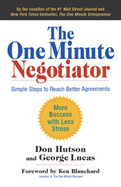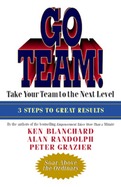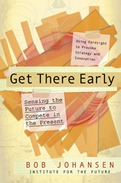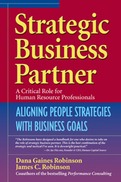-
By the coauthor of the #1 Wall Street Journal and New York Times bestseller The One Minute Entrepreneur
-
Offers a simple, straightforward, and proven approach to negotiating anything
-
Written in the popular and accessible "business fable" format
Negotiation impacts every aspect of our lives, from the deals we strike on the job to our relationships with family members and neighbors, to the transactions we make as customers. Yet most people do anything they can to avoid negotiation -- it makes them uncomfortable, nervous, even frightened. This plague of "negotiaphobia" is that The One Minute Negotiator will remedy.
Don Hutson and George Lucas use an engaging business parable to tell the story of a high-level sales professional who learns to master a simple yet profound approach to negotiations. Jay Baxter sells more than anyone else in his company, but his profit margins are slim. Instead of negotiating the best deal for the company, he's giving too much away to get the sale. On a company-sponsored cruise he meets the One Minute Negotiator, who teaches him a three-step negotiating process that can be applied to any situation: closing a deal to get your product in a big-box retail store, getting the best loaner car while your car is in the shop, seeking a fair solution after a hotel messes up your reservation, settling on the price for your new home -- in short, any transaction.
The key is flexibility. Most books on negotiation preach one of two gospels: thou shalt collaborate or thou shalt compete. Either everybody works together toward a common goal or the process is basically adversarial. The problem is no two negotiations are alike -- one strategy cannot fit all. The One Minute Negotiator teaches you four potential strategies and shows how to choose the one best suited to the situation, your own inclinations, and the strategy being used by the other side.
Besides the obvious benefits, conquering negotiaphobia will reduce your stress level. You'll never walk away thinking about what you should have asked for or might have gotten. Instead, with tools Hutson and Lucas provide you can confidently and consistently guide any negotiation to the best possible conclusion.
2007
- Coauthored by Ken Blanchard, coauthor of The One Minute Manager and numerous other international bestsellers
- Provides a guided, 3-step process for turning a group of people into a Next-Level Team that can and does achieve great results
- Includes many case examples of teams that have become Next-Level Teams
2007
Unfortunately research also indicates that few HR functions have become strategic. Most still operate in a primarily administrative and tactical manner—the very work that is increasingly being outsourced. Clearly there is a gap between what business leaders and employees need from their HR departments and what HR is providing.
HR functions must become more integrated into the business, with some people on the HR team assuming the role of Strategic Business Partner (SBP). Here, Dana and Jim Robinson offer guidance for HR, Organization Development and Learning professionals who aspire to transform themselves into effective Strategic Business Partners. They explain how SBPs build partnerships, based upon credibility and trust, with key organization leaders. These partnerships provide SBPs with opportunities to identify and support projects directly aligned with business goals. The success of these projects deepens the SBPs' credibility, enabling them to be viewed as strategic partners. At this higher level of accountability, SBPs work with business leaders to form long-range business strategies and plans, creating and implementing people initiatives that link into and support the business strategies and plans.
This practical guide offers case studies, exercises, tips, and tools you can use to become a Strategic Business Partner in your organization.
- By the coauthors of the bestselling Performance Consulting and Zap the Gaps (with Ken Blanchard)- each more than 60,000 copies sold
- The first book to show human resource professionals precisely how they can assume the critically important role of Strategic Business Partner
- A how-to book filled with specific techniques and practices to use on the job
While the concept of positive organizational scholarship encompasses the examination of typical and even dysfunctional patterns of behavior, it emphasizes positive deviance from expected patterns. Positive Organizational Scholarship examines the enablers, motivations, and effects associated with remarkably positive phenomena --- how they are facilitated, why they work, how they can be identified, and how researchers and managers can capitalize on them. The contributors do not adopt one particular theory or framework but draw from the full spectrum of organizational theories to understand, explain, and predict the occurrence, causes, and consequences of positivity.
Positive Organizational Scholarship rigorously seeks to understand what represents the best of the human condition based on scholarly research and theory. This book invites organizational scholars to build upon and extend the positive organizational phenomena being examined. It provides the definitional, theoretical, and empirical foundations for what will become a cumulative body of enduring work.
- Path-breaking scholarly volume exploring the dynamics in organizations that lead to extraordinary individual and organizational performance
- Establishes a new field of study in the social sciences
- Offers practical guidance for managers, as well as a future research agenda for understanding and enabling positive organizational behavior
2009
This landmark book draws on Mintzberg's observations of twenty-nine managers, in business, government, health care, and the social sector, working in settings ranging from a refugee camp to a symphony orchestra. What he saw—the pressures, the action, the nuances, the blending—compelled him to describe managing as a practice, not a science or a profession, learned primarily through experience and rooted in context.
But context cannot be seen in the usual way. Factors such as national culture and level in hierarchy, even personal style, turn out to have less influence than we have traditionally thought. Mintzberg looks at how to deal with some of the inescapable conundrums of managing, such as, How can you get in deep when there is so much pressure to get things done? How can you manage it when you can't reliably measure it?
This book is vintage Mintzberg: iconoclastic, irreverent, carefully researched, myth-breaking. Managing may be the most revealing book yet written about what managers do, how they do it, and how they can do it better.
























